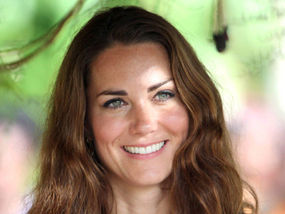London, Jun 23: Almost three quarters of men say they find women more attractive when they wear less makeup; however what they think is the natural look is more likely to take hours of effort and plenty of special makeup tricks, says a research.
 The new research conducted by QVC, an online site dealing in cosmetic brands, saw almost a third of men say their partner wears no makeup.
The new research conducted by QVC, an online site dealing in cosmetic brands, saw almost a third of men say their partner wears no makeup.
However, when surveyed, only three percent of women said they are completely bare faced at all times, while one in seven admit they're not always truthful about their beauty regime and sometimes tell people they are wearing less makeup than they really are, reports femalefirst.co.uk.
In seems that cosmetics play a huge part in empowering women as even those looking to achieve a natural look are reluctant to ditch their makeup altogether. In fact, well over two-thirds of women feel most comfortable in their skin once their makeup is applied.
Alison Young, QVC beauty expert, said: "Well this season especially with the summer months coming forward it's all about heat it's about waterproof make up but it's also, our survey showed it's about the natural look, but the natural look can take up to 30 minutes of make-up application to actually achieve during the day and to maintain."
Furthermore the research from QVC beauty found that 68 percent of women agree perfectly flawless skin and styled hair are the key ingredients to making them feel beautiful.
A third of women also say they feel most confident in the warmer weather, despite the fact that they wear less make up with other big confidence boosters including a compliment from a female friend.





Comments
Magnificent goods from you, man. I've understand your stuff previous to and
you're just too fantastic. I really like what you've
acquired here, certainly like what you are saying and the way
in which you say it. You make it enjoyable and you still care for to
keep it wise. I can not wait to read much more from you.
This is actually a great website.
Feel free to visit my homepage - how to
get rid of hives: https://howtogetridofhivesfaster.wordpress.com/2015/12/01/best-way-to-g…
Add new comment